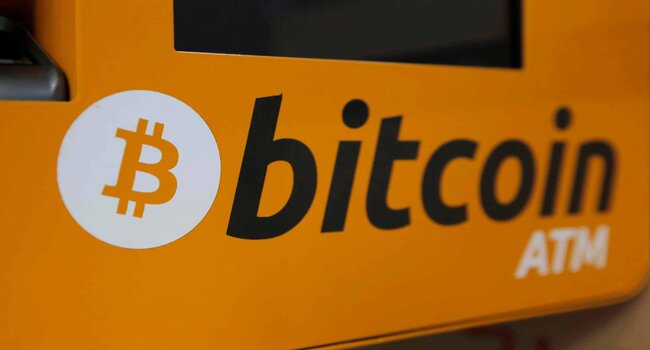Highlights:
- Arizona’s House Bill 2387 aims to limit Bitcoin ATM fraud with strict regulations.
- Bitcoin ATM fraud has surged from $12 million in 2020 to $112 million in 2023.
- The bill introduces a $1,000 daily transaction cap and operator licensing.
Lawmakers in Arizona are establishing measures to check the increasing use of Bitcoin ATM fraud prevalent among state residents. House Bill 2387, which was tabled by Democratic Party representative David Marshall, provides new regulations to reduce financial losses. The bill aims to increase transaction limits, licensing for the machines, and refund policies to be adopted by Bitcoin ATM operators.
BITCOIN ATM SCAMS FORCE ARIZONA INTO ACTION
Arizona lawmakers are stepping up against Bitcoin ATM fraud with House Bill 2387, setting stricter transaction limits and licensing rules.
Scammers are exploiting lax oversight, leading to $127 million in reported losses last year,… pic.twitter.com/bC1hm1Ll4d
— IBC Group Official (@ibcgroupio) February 8, 2025
Scammers Exploit Bitcoin ATMs for Fraud
Authorities reported a resurgence of Bitcoin ATM crimes, detailing that criminals target vulnerable individuals. According to the FBI’s 2023 Cryptocurrency Fraud Report, Arizona lost $127 million to crypto-related scams and veterans over 60 are most often the victims. In addition, the Federal Trade Commission (FTC) data noted that the fraud connected to Bitcoin ATMs rocketed from $12 million in 2020 to $112 million in 2023.
Customers are likely to be duped into scams involving fake customer service calls. A Peoria resident named Tamara reported that she was duped into withdrawing $17,000 by a fake PayPal representative. The scammer said her accounts had been hacked and forced her to send the money through a Bitcoin ATM.
According to fraud analysts, scammers often use fear to deceive their targets. Anthony Zervos, a former fraud investigator, stated that only two out of ten Bitcoin ATM transactions are legitimate, with the majority involving scams.
House Bill 2387 Introduces New Restrictions
The bill proposes key measures to limit the prevalence of fraud. A $1,000 daily transaction limit would prevent large fraudulent withdrawals. Only authorized operators with the necessary licenses would manage Bitcoin ATMs. Adding a mandatory refund policy would help protect consumers by giving them a way to recover lost funds.
Arizona Attorney General Kris Mayes backs the bill and reiterates that tighter oversight of circuses is dire. According to her, Bitcoin ATMs are usually unregulated, which makes them an ideal tool for scammers. Tracking fraudulent transactions is also difficult as cryptocurrency is anonymous, according to law enforcement.
Authorities Warn Residents About Growing Fraud Risks
According to the police report, Bitcoin ATM scams have seen families lose huge sums of money. In response, Yavapai County Sheriff’s Office Investigator Ron Norfleet launched an awareness campaign. These efforts involve warning signs at Bitcoin ATMs telling users to verify transactions before proceeding.
Scammers often threaten their victims, believing they must comply to receive their money back. Tamara’s experience is typical of how fraudsters create a sense of urgency to rush victims into immediate action.
With approximately 600 Bitcoin ATMs installed in Arizona, it has become a prime target for scammers. By passing House Bill 2387, Arizona will create precedence for other states for regulation of Bitcoin ATM operations as well as combating financial fraud.
On January 23, North Dakota lawmakers similarly considered House Bill 1447 to tackle cryptorelated fraud. The bill strictly regulates crypto ATMs, subjecting them to a minimum $5 or 3% transaction fee and a daily withdrawal cap of $1,000. After residents lost $6.5 million, lawmakers have put an emphasis on reducing scams.
Best Crypto Exchange
- Over 90 top cryptos to trade
- Regulated by top-tier entities
- User-friendly trading app
- 30+ million users
eToro is a multi-asset investment platform. The value of your investments may go up or down. Your capital is at risk. Don’t invest unless you’re prepared to lose all the money you invest. This is a high-risk investment, and you should not expect to be protected if something goes wrong.






